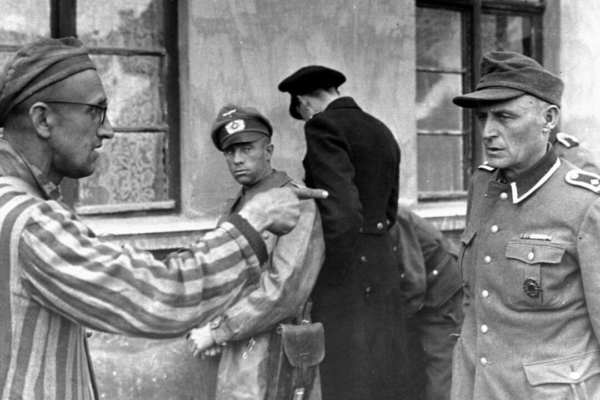In 1828, the British historian Thomas Macaulay expressed the hope that future British crises would be handled by leaders who learn from history and do not let history record a long list of crimes and foolish behaviors by humanity.
Renowned contemporary British historian Richard J. Evans has a broader goal in his new book “Hitler’s People: The Faces of the Third Reich” (2024). He believes that everyone, not just leaders, should learn lessons from the crimes of the Nazis and think about why so few people resisted.
Evans took a biographical approach, focusing not only on German Nazi leader Adolf Hitler, but also providing brief life overviews of 21 members of Hitler’s power circle, including key figures like Göring, Himmler, Goebbels, Heydrich, Eichmann, and filmmaker Leni Riefenstahl.
Evans does not excuse anyone, including Albert Speer, who claimed after the war that he knew nothing about the crimes of Nazism. Evans points out how Speer provided a convincing excuse for millions of Germans living under the Third Reich’s rule.
Economist Friedrich Hayek, in his influential work “The Road to Serfdom” (1944/2007), issued a critical warning that sheds light on understanding Hitler’s people. Hayek emphasized the dangers of breaking every moral rule to serve totalitarian regimes.
Evans’ work sheds light on how ordinary people set aside humanity, paving the way for atrocities. Drawing from concepts like “threshold magnitude” from physics, author Aleksandr Solzhenitsyn explains in “The Gulag Archipelago” that evil behavior has a threshold level – a point of no return.
Evans’ findings challenge the notion that most Germans were unaware of Nazi crimes, exposing how widespread knowledge and support for anti-Semitic policies were among the population.
Evans’ conclusions underline the shared responsibility of Germans in enabling Hitler’s regime, rejecting the notion that most were innocent bystanders. He holds that the normalization of perverted morality was crucial in allowing the atrocities to occur.
Evans reminds us that the Nazi regime thrived not solely on support but on coercion and violence, dispelling the myth of collective ignorance among Germans. He scrutinizes the depth and breadth of surveillance and control mechanisms employed by the regime.
Evans prompts us to reflect on how hatred, if left unchecked, can ignite destructive forces, emphasizing the importance of unity around shared principles and beliefs rather than a singular vision or imposed common goal.
Evans’ research underscores the dangers of hate and the importance of learning from history to prevent it from consuming societies. His work serves as a detailed and cautionary tale for nations not willing to heed the lessons of the past.

